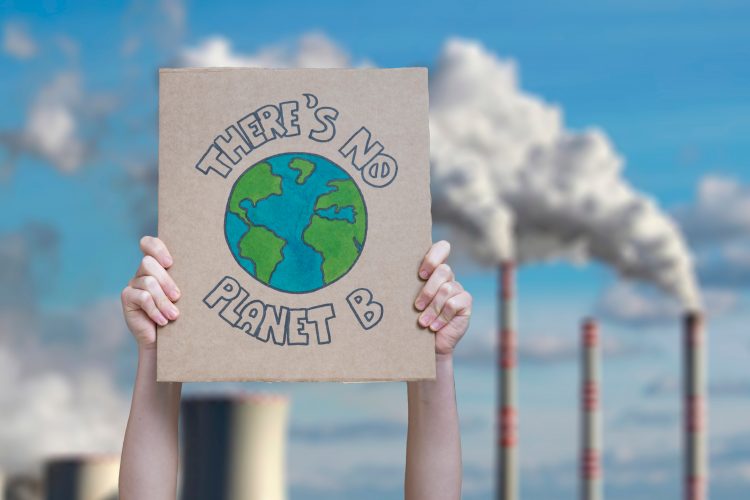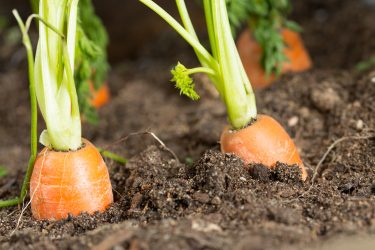How can we achieve Net Zero?
- Like
- Digg
- Del
- Tumblr
- VKontakte
- Buffer
- Love This
- Odnoklassniki
- Meneame
- Blogger
- Amazon
- Yahoo Mail
- Gmail
- AOL
- Newsvine
- HackerNews
- Evernote
- MySpace
- Mail.ru
- Viadeo
- Line
- Comments
- Yummly
- SMS
- Viber
- Telegram
- Subscribe
- Skype
- Facebook Messenger
- Kakao
- LiveJournal
- Yammer
- Edgar
- Fintel
- Mix
- Instapaper
- Copy Link
Posted: 4 June 2021 | Bethan Grylls (New Food) | No comments yet
Following a virtual panel last week on how the food and drink sector can get to Net Zero, New Food’s Editor Bethan Grylls recaps the highlights, including the obstacles and the potential solutions.


“There is no future if there is no sustainable future.” It was a powerful sentiment to open a virtual panel with; but Luke Pollard’s, Shadow Secretary of State for Environment, Food and Rural Affairs, words ring true. If we carry on as we are, then there won’t be anything else left to destroy.
Pollard was joined by representatives from the Food and Drink Federation (FDF), National Farmers Union (NFU) and the Conservative Environment Network (CEN) at a virtual gathering of minds on 26 May to discuss how the food sector can achieve Net Zero in the UK.
Despite the different sectors in which this panel resided, what was made abundantly clear is their shared belief that action is needed and that the current action imposed by UK Government may not be adequate.
“Whether you are left or right, we need to get to Net Zero. That will only happen if the Government starts to take bold action,” affirmed Pollard.
What does Net Zero mean?
In 2019, the UK Government and devolved administrations agreed upon a Net Zero target, which aims for Britain to reduce its greenhouse gas (GHG) emissions by 100 percent relative to 1990 levels by 2050.1
The original target was to reduce emissions by at least 80 percent (of their 1990 levels), but following a recommendation from the Committee on Climate Change (CCC) two years ago, the decision was taken to push this target to 100. The hope is that this ambitious goal will mean the UK can remain in line with its commitments set out in the Paris Agreement in 2016 – to keep global warming under two degrees.
Net Zero doesn’t actually mean we’ll be free from emissions, but rather it intends to create a balance between the levels of GHGs we are producing vs the amount removed from the atmosphere.
Those that we do proceed to emit will need to be offset. So, the more we can reduce our emissions, the simpler it becomes to create this balance.
At the same time as reducing emissions, the world needs to prepare for an inevitable rise in temperature. This is because all the while we take actions

As the CCC states in its June 2020 Reducing UK emissions report: “If the world succeeds in meeting the goals of the Paris Agreement, the latest UK climate projections suggest the country will experience an additional warming of around 0.6°C between now and 2050. This is the minimum change we must adapt to.”2
As part of the UK’s Net Zero roadmap, milestone targets have been outlined; and although Britain is on track to meet its third target (covering the period between 2018 and 2022), it’s likely to miss its next few.
Clearly, as Pollard indicated, urgent action is needed.
How can we achieve Net Zero?
Of course, the food and drink sector is not solely responsible for achieving this Net Zero goal, but like any industry it has its own objectives that could contribute to hitting this target by 2050.
The question is: what is the sector doing about it?
Meat vs plant-based
In its December 2020 report The Sixth Carbon Budget, the CCC recommended a shift away from meat and dairy products, with a 20 percent reduction by 2030 and an additional 15 percent by 2050.3
It’s important to flag here the use of ‘reduction’ not replacement. There has been a tendency, as NFU President Minette Batters stated during the virtual panel, to “demonise” meat and lay blame on this sector for all our sustainability woes.
It’s no secret the plant-based movement is gaining more momentum. In just a year (2018-19) we saw an increase in vegan product registrations4 and this will have been driven by a consumer demand for more sustainable products. However, it’s worth noting that not all plant-based products will be sustainable – indeed, we should look to reduce our meat consumption, but it is also crucial that any food we eat is sustainably sourced.
Commenting on diet, Pollard said greater methods of information such as carbon emissions data on menus, whereby consumers can make their own educated decisions, would be a useful tool in the achieving Net Zero targets. Crucially, however, he added that “MPs should not be dictating what people should eat”.
Despite her calls for more data, Emma Piercy, Head of Climate Change & Energy Policy at the FDF, responded to Pollard’s point with caution: until we have “joined up thinking” these types of incentives won’t work. She raised concerns over the number of varying methodologies currently available to calculate carbon emissions of food.
“We need consistency” to make informed decisions, she advised; and we must be careful not to rapidly introduce new policies which could later be picked apart. “If consumers find holes in the methodology, that will erode trust,” she explained. “If everyone is using the same methodology, the data becomes more accurate.”
Farming methods
With the CCC suggesting lowering our meat consumption, there is an argument that a move to organic farming could be better for the planet. As the Soil Association puts it: “It is argued that large herds of fast-growing cows have less climate impact, mainly because they live shorter lives. But, although they live for a shorter time, these farms aim to raise more cows. The more beef that’s produced, the more methane will be released.
“The picture is bigger than methane too; intensive farms can be pollution hotspots. They rely on lots of water and grain crops for animal feed. Producing this grain uses land that could be used for human food crops.
“In the UK, the scale of intensive farming is not quite as extreme as many of the farms in the US, although the number of ‘intensive’ UK farms is growing fast.


Would organic produce help the UK achieve Net Zero?
“At the other end of the scale, organic and grass-fed farming methods have been found to have many positive environmental impacts. In other words – it’s not the cow, it’s the how.”5
The Soil Association therefore welcomed the CCC’s December report. “For the first time, this route recognises the damaging impacts of animal feed to climate and nature, including that of imported soy from South America, fed to chickens and pigs in UK intensive systems,” the Association said in a press release: 6
Conversely, in the NFU’s Achieving Net Zero Report,7 NFU President Batters writes that she does not believe the answer lies in transition to an entirely organic system. Rather, she suggests the way forward is a focus on sustainable farming practice that centres around soil health but added that “there is no single answer to this problem” of climate change.
Healthy soil
The NFU has identified the agriculture sector’s unique position to help the UK meet its targets, with Batters naming the protecting of carbon reserves in soil as a “special responsibility” of farmers.
In her Welcome in the aforementioned NFU report,7 she highlights that getting to Net Zero will be a challenge and writes this will only be deliverable if action is taken across a range of internationally recognised inventories.
According to Batters, to achieve this it will require a range of measures that fall under three categories:
- Improving farming’s productive efficiency
- Improving land management and changing land use to capture more carbon
- Boosting renewable energy and the wider bioeconomy.
The price of sustainability
There’s another related issue here, however: most consumers will make food choices based on price. Organic produce is known for its higher price tag, so will more sustainable practice mean we’ll begin to see a sharp incline in other meat and poultry items?
Arguably this is not the issue of the food sector, but as Pollard flagged, “a poverty issue”.
We need to lift people out of poverty, he stated, by addressing other areas that increase the cost of living such as house prices.


In 2020/21 approximately 2.5 million people used a foodbank in the UK, over 600,000 more than the previous year, according to Statista5
New Food has written previously around other related areas to climate change. For example, in an article earlier this year, we highlighted the fact that although global obesity levels have nearly tripled since 1975, more than 690 million people go to bed hungry. Despite this startling statistic, we are still wasting food – approximately one third of all food is wasted.8
The Food and Agriculture Organization of the United Nations (FAO) estimates that if food waste was a country it would be the third highest emitter of GHG emissions,9 but the truth is we don’t actually know how much the food sector – including food wasted – is contributing to emissions. This is because there is no simple way to determine the impact it’s having on climate change, as Piercy explained, “we cannot manage what we cannot measure” and hence her call for an aligned methodology.
What is clear is that as we attempt to fix and improve areas within our food supply on our journey to Net Zero, other issues will come into the fold and it’s only once we have addressed the cracks in our foundations that we’ll be able to move forwards.
Troubling trade talks
Another compelling point made during the panel was the topic of trade talks, specifically the pending Australian deal.
Batters described this particular deal as “setting a precedent” and markedly shared her concerns over the UK Government’s hurry to sign an agreement with the continent.
This is something which she has previously openly expressed concern over: “A tariff-free trade deal with Australia will jeopardise our own farming industry and could cause the demise of many, many beef and sheep farms throughout the UK. This is true whether tariffs are dropped immediately or in 15 years’ time. The Prime Minister and his government have pledged to level up the country. Agreeing to a tariff-free trade deal with a major agricultural exporter, with no safeguards or review mechanisms, would do exactly the opposite of that commitment and set swathes of rural Britain backwards.”
During the live session in May, she emphasised these points, adding that the “UK can’t compete on scale” but it should “lead on sustainable food production”.
She continued: “Government needs to stop writing positive press releases and start writing positive policy – and we need that policy urgently.”
Sam Hall, Director at CEN, thoughtfully agreed: “Making trade freer is good because we will never be truly self-sufficient, but we need to be cautious. There a recognition of the importance of upholding our food safety levels, but there is not the same understanding for sustainability or animal welfare. We need to carry out a full environmental impact assessment before accepting any deal.”
Pollard also raised concerns over food miles, stating that the current Government was not considering the environmental impact over-importing would have.
“I don’t believe that replying on more imports will fare well for Britain in terms of hitting those sustainable goals or for British jobs,” he noted.
“I want to see a proper plan that is coherent. Currently there are lots of plans that don’t mesh well together.”
What is industry doing to reach Net Zero?
There have been quite a number of ambitious announcements from industry, from Arla’s poo-powered biofuel, to Nespresso’s Reviving Origins project, and very recently McCormick’s new Peterborough site in the UK, which is on track to becoming the company’s first ‘Net Zero Carbon Building’.
But despite such positive headlines, it’s no secret that the sector is struggling. In fact, a YouGov survey of high-ranking figures in companies around the UK recently revealed the majority of firms do not have plans in place to become more sustainable, and just over a third have actually achieved any goals. Although it should be noted that the pandemic has made this feat harder.
Along with the NFU, which has outlined a plan of action in the above-mentioned Net Zero report, the FDF also intends to release a handbook for businesses in a hope to make things a little easier.
This is due to be published in full at COP26 (the 2021 United Nations Climate Change Conference to be held in November) and will look at the actions that companies can undertake to help them in their Net Zero journey.
The handbook will be divided into sections: ingredients, packaging, manufacturing, storage/distribution and customers – and will set out what businesses can do in each of these areas to reduce their carbon footprint.
So what’s the answer to achieving Net Zero? Well, it’s a big question, but I will leave you with Piercy’s thoughts: “We haven’t got all the answers right now – but we will have.”
Personally, I agree with Piercy’s feelings over the importance of aligning methodologies around the impact our food is having. If Britain is to lead on sustainability as Batters suggested it could, then we must adopt a united approach. Without clear data, how do we know what’s working and what progress we’re making? Frankly, it will be impossible.
References
- instituteforgovernment.org.uk/explainers/net-zero-target
- theccc.org.uk/publication/reducing-uk-emissions-2020-progress-report-to-parliament/
- theccc.org.uk/wp-content/uploads/2020/12/The-Sixth-Carbon-Budget-The-UKs-path-to-Net-Zero.pdf
- vegansociety.com/news/media/statistics
- www.statista.com/statistics/382695/uk-foodbank-users/
Related topics
Related organisations
Arla, Committee on Climate Change (CCC), Conservative Environment Network (CEN), Food and Agriculture Organization of the United Nations (FAO), Food and Drink Federation (FDF), McCormick, National Farmer's Union (NFU), Nespresso









